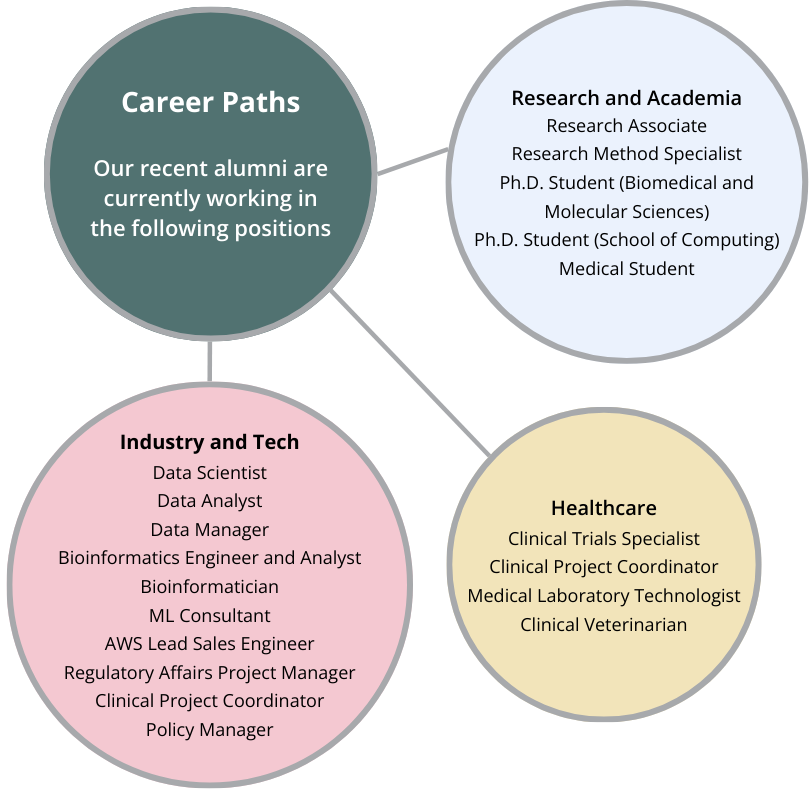Imagine using AI and Big Data to transform your medical career. Changing how health care is approached and delivered is the goal of our two new professional programs: a graduate diploma and a Master's in Biomedical Informatics.
Program Structure
Using a ladder approach, students can complete a 4-month graduate diploma, with the option to continue on to complete a one-year Master's.
Graduate Diploma in Biomedical Informatics
May - August
Four core courses (12 credit units)
BMIF-801 - Programming for Biomedical Data
(note: students must pass BMIF 801 to proceed in the program)
BMIF-802 - Biomedical Data Analysis
BMIF-803 - Biomedical Data Mining and Applications
BMIF 804 - Medical Imaging Informatics
Master's in Biomedical Informatics (MBI)
May - August
Complete 4 core courses (12 CU) from GDBI
September - April
2 Elective Courses (6 CU) from QSC and DBMS
Biomedical Informatics Research Project (6 CU)
Submit report for committee review and approval


Why Biomedical Informatics?
- Tackle real-world challenges in healthcare using data and computation
- Train hands-on with Python, R, machine learning, and medical imaging
- Prepare for careers in genomics, pharma, clinical research, and health tech
Why BMIF at Queen's?
- Graduate Diploma + Master's take only 12 months to complete
- Learn in small, focused cohorts with individualized attention
- Projects are supervised by active research faculty in Computing and Biomedical Sciences

Key Features
- Flexible commitment: start with Graduate Diploma (4 months), continue to Professional Master's research project (12 month total program)
- No coding background required: learn the necessary skills in the program
- Hands-on learning: train using real biomedical data in AI, bioinformatics, medical imaging, and data analytics
- Interdisciplinary expertise: learn from faculty in both computing and biomedical sciences
- Close-knit cohorts: small classes, strong alumni network
BMIF Excellence Awards
Each year, the top performing students in the program are rewarded with the BMIF Excellence Award. Congratulations to all the deserving winners!

Admissions Requirements
- BSc (Honours) in biology, life sciences, biochemistry, computer science, biostatistics, engineering, or a related field
- Minimum B+ average in 3rd- and 4th-year courses
- At least one academic reference
Applicants must demonstrate strong interest in computational and quantitative methods applied to biomedical problems. This program is open to both recent undergraduates and graduates of professional programs (e.g., medicine, nursing). International applicants must provide English language proficiency scores (if applicable) and obtain a valid study permit.
Application Deadlines
- International: December 1st
- Domestic: February 1st
Apply now through the School of Graduate Studies and Postdoctoral Affairs. There's also more information in the program FAQ.
Tuition and Fees
The tuition fee schedule is posted on the University Registrar's website. There's also more information in the program FAQ.